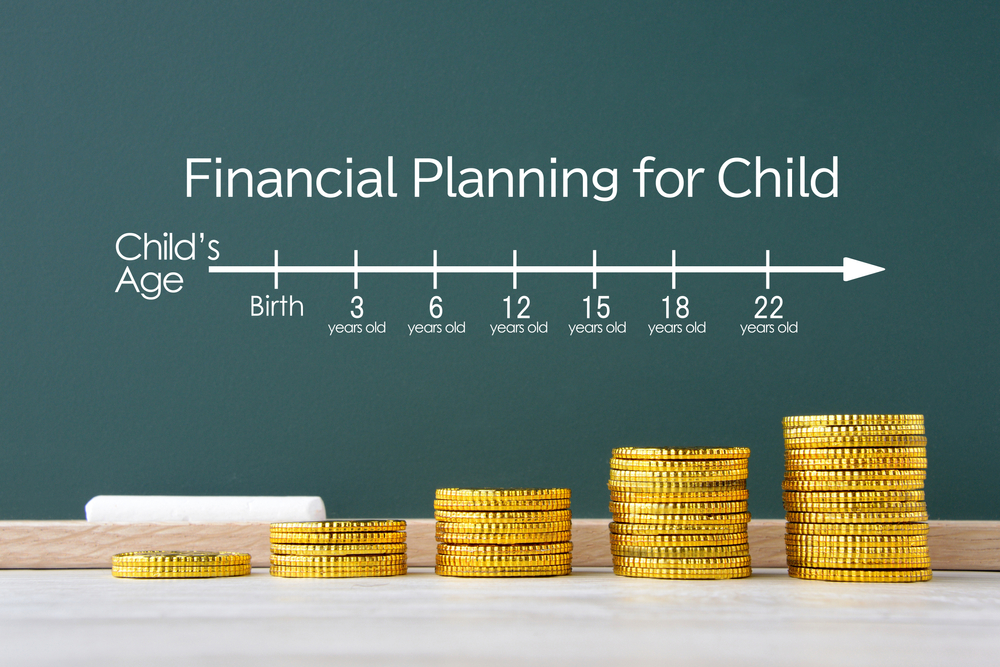Saving for your child’s education takes years of dedication, but it’s often the everyday spending habits that quietly undo all that effort. While large expenses are easy to spot, smaller purchases can gradually chip away at your college savings without you noticing. From subscription services to morning coffee runs, these costs seem harmless until you calculate their annual impact. The good news is that identifying these hidden drains can help you redirect hundreds—or even thousands—of dollars each year back into your child’s future.
1. Daily Coffee Runs Add Up Fast
That morning coffee habit feels like a small indulgence, but it’s one of the biggest culprits behind dwindling college funds. Spending just five dollars a day on coffee adds up to more than $1,800 a year. Over a decade, that’s nearly $18,000 that could have gone toward tuition or textbooks. Brewing coffee at home or using a refillable travel mug can save a surprising amount over time. Simple swaps like these help preserve your college savings while keeping your caffeine fix intact.
2. Subscription Services You Forget to Cancel
Streaming platforms, apps, and monthly boxes are convenient but often quietly drain college funds. Many families sign up for multiple services, each costing $10 to $20 per month. When combined, they can easily total several hundred dollars a year. Reviewing your subscriptions quarterly can help identify which ones no longer provide real value. Canceling unused or redundant subscriptions is an easy win for boosting your college savings without sacrificing much comfort.
3. Takeout and Food Delivery Fees
Ordering dinner on busy nights is tempting, but the costs add up quickly. Delivery fees, tips, and inflated menu prices can double the cost of a meal compared to cooking at home. Spending $40 a week on takeout adds up to over $2,000 annually, eating into your college savings without much to show for it. Meal planning and batch cooking can make weeknights easier while saving significant money. Even cutting back to one takeout night per month can make a real difference over time.
4. Impulse Buys at the Grocery Store
Those little extras at checkout might seem minor, but they add up fast. Impulse purchases often include snacks, drinks, or seasonal items you didn’t plan to buy. Even spending an extra $15 per grocery trip can cost you nearly $800 a year. Making a shopping list and sticking to it can protect your college savings from unnecessary spending. Shopping with purpose turns your grocery budget into a financial ally instead of a leak.
5. Frequent Clothing Purchases
It’s easy to justify new clothes, especially for growing kids or changing seasons, but too many shopping trips can shrink your college fund. Fast fashion deals may seem affordable, yet frequent small purchases quickly accumulate. Buying quality basics that last longer can cut your annual clothing budget significantly. Shopping secondhand or during clearance sales can also keep wardrobes updated without guilt. Every avoided splurge moves more money toward future tuition payments.
6. Convenience Store Stops and Gas Station Snacks
Quick stops for a snack or drink during errands can seem harmless but often lead to overspending. Even small purchases of two to five dollars a few times a week total hundreds of dollars yearly. Packing snacks and drinks before heading out can help protect your college savings from these mindless expenses. It’s about trading impulse for intention. Over time, that spare change adds up to real contributions toward education goals.
7. Premium Cable or Internet Packages
Many households pay for cable channels or internet speeds they rarely use. Premium bundles can quietly eat into college savings month after month. Downgrading to a more basic plan or switching to a streaming-only setup can save hundreds annually. Internet-only options paired with low-cost platforms often provide the same entertainment for less. A quick phone call to renegotiate your plan can put more money back into your child’s education fund.
8. Gym Memberships That Go Unused
A gym membership is a great investment in health—if you use it consistently. Unfortunately, many families pay monthly fees for memberships they rarely visit. Those unused costs drain college savings that could serve a better purpose. Home workouts, outdoor activities, or pay-per-class options can provide fitness benefits without the ongoing expense. Reviewing all memberships annually helps ensure your money supports real priorities.
9. Excessive Gift Spending
Birthdays, holidays, and special occasions often inspire generous spending habits that can unintentionally pull funds from college savings. It’s easy to overspend when celebrating loved ones, especially with social pressure to buy something impressive. Setting a reasonable budget and focusing on thoughtful, meaningful gifts can prevent emotional overspending. Homemade or experience-based gifts often have more impact and cost less. Redirecting even part of your annual gift budget toward education savings can yield long-term rewards.
10. Frequent Upgrades to Phones or Gadgets
Technology evolves quickly, and companies encourage constant upgrading. But new phones, tablets, or smartwatches every year can put a major dent in college funds. Extending the lifespan of your devices by even one extra year can save hundreds. Choosing repair options over replacements and resisting upgrade promotions helps your savings stay on track. A little patience can protect your budget and demonstrate smart financial habits to your kids.
The Small Choices That Shape Big Futures
Protecting your college savings doesn’t require big sacrifices—it’s about awareness and consistency. Every skipped takeout order or canceled subscription builds momentum toward your child’s education fund. The key is treating daily spending as part of your long-term financial strategy. When families make mindful choices, those small savings compound into something far greater: opportunity and peace of mind for the future.
What everyday purchases have you found hardest to cut back on while saving for college? Share your thoughts in the comments below!
What to Read Next…
How One Baby Name Choice Could Affect College Admissions
College Fund Erased: 6 Financial Traps Erasing Your Child’s College Fund
Are Parents Obligated to Pay for Their Children’s College Education?
4-Year College: Smart Investment or Total Rip-Off?
College Doesn’t Have to Cost a Fortune
Catherine is a tech-savvy writer who has focused on the personal finance space for more than eight years. She has a Bachelor’s in Information Technology and enjoys showcasing how tech can simplify everyday personal finance tasks like budgeting, spending tracking, and planning for the future. Additionally, she’s explored the ins and outs of the world of side hustles and loves to share what she’s learned along the way. When she’s not working, you can find her relaxing at home in the Pacific Northwest with her two cats or enjoying a cup of coffee at her neighborhood cafe.









